
Wardell Edwin Bond was an American film character actor who appeared in more than 200 films and starred in the NBC television series Wagon Train from 1957 to 1960. Among his best-remembered roles are Bert the cop in Frank Capra's It's a Wonderful Life (1946) and Captain Clayton in John Ford's The Searchers (1956). As a character actor, Bond frequently played cowboys, cops and soldiers. Ward Bond was an early and virulent anti–communist.

Wilfred Van Norman Lucas was a Canadian American stage actor who found success in film as an actor, director, and screenwriter.
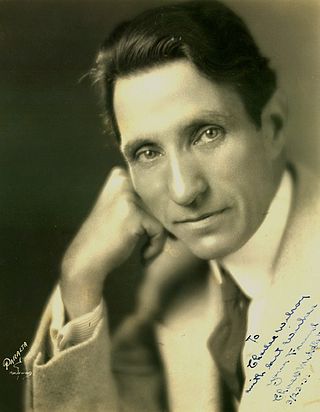
Charles Brown Middleton was an American stage and film actor. During a film career that began at age 46 and lasted almost 30 years, he appeared in nearly 200 films as well as numerous plays. Sometimes credited as Charles B. Middleton, he is perhaps best remembered for his role as the villainous emperor Ming the Merciless in the three Flash Gordon serials made between 1936 and 1940.
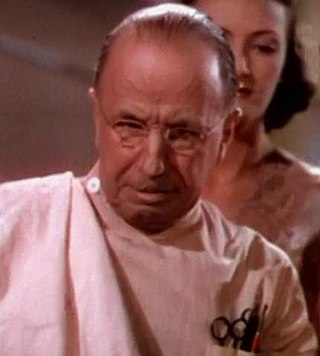
Arthur Hoyt was an American film character actor who appeared in more than 275 films in his 34-year film career, about a third of them silent films.

John Francis Regis Toomey was an American film and television actor.

George Meeker was an American character film and Broadway actor.

Edward LeSaint was an American stage and film actor and director whose career began in the silent era. He acted in over 300 films and directed more than 90. He was sometimes credited as Edward J. Le Saint. LeSaint typically portrayed characters in roles of authority, including over 30 roles, both credited and uncredited, as a judge.
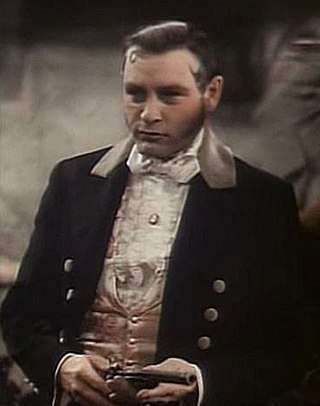
Eddy Chandler was an American actor who appeared, mostly uncredited, in more than 350 films. Three of these films won the Academy Award for Best Picture: It Happened One Night (1934), You Can't Take It with You (1938), and Gone with the Wind (1939). Chandler was born in the small Iowa city of Wilton Junction and died in Los Angeles. He served in World War I.

Theodore von Eltz was an American film actor, appearing in more than 200 films between 1915 and 1957. He was the father of actress Lori March.
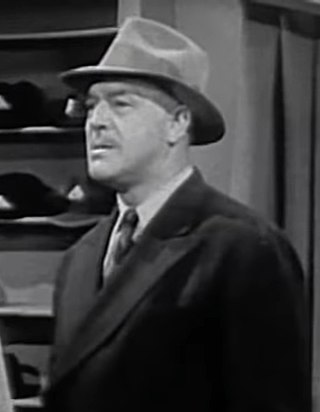
William Stanley Blystone was an American film actor who made more than 500 films appearances from 1924 to 1956. He was sometimes billed as William Blystone or William Stanley.
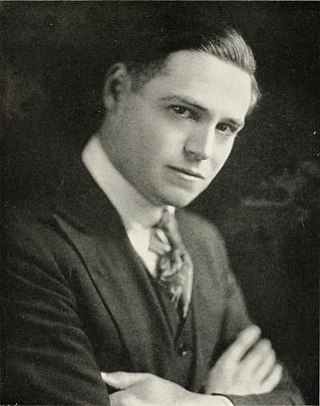
Guy Edward Hearn was an American actor who, in a forty-year film career, starting in 1915, played hundreds of roles, starting with juvenile leads, then, briefly, as leading man, all during the silent era.

Walter James was an American character actor. He appeared in more than 50 films between 1915 and 1942. He was born in Chattanooga, Tennessee, and died in Gardena, California from a heart attack.

Richard Whitlock Tucker was an American actor. Tucker was born in Brooklyn, New York. Appearing in more than 260 films between 1911 and 1940, he was the first official member of the Screen Actors Guild (SAG) and a founding member of SAG's Board of Directors. Tucker died in Woodland Hills, Los Angeles from a heart attack. He is interred at Forest Lawn Memorial Park, in an unmarked niche in Great Mausoleum, Columbarium of Faith.

Robert O'Connor, also known professionally as Robert Emmett O'Connor and Robert E. O'Connor was an Irish-American actor. He had a lengthy career as a stage actor on Broadway and in vaudeville from 1905-1931; using the stage name Robert O'Connor in both musicals and plays. After transitioning to film, he also used the names Robert Emmett O'Connor or Robert E. O'Connor for his screen credits. He appeared in more than 200 films between 1919 and 1950; specializing in portraying policemen. He is probably best remembered as the warmhearted bootlegger Paddy Ryan in The Public Enemy (1931) and as police Sergeant Henderson pursuing the Marx Brothers in A Night at the Opera (1935). He also appeared as Jonesy in Billy Wilder's 1950 film Sunset Boulevard. He also made an appearance at the very beginning and very end of the Metro-Goldwyn-Mayer cartoon short Who Killed Who? (1943).
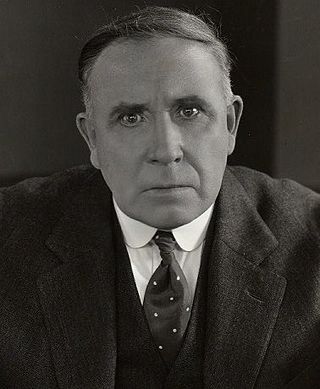
DeWitt Clarke Jennings was an American film and stage actor. He appeared in 17 Broadway plays between 1906 and 1920, and in more than 150 films between 1915 and 1937.

Walter B. McGrail was an American film actor. He appeared in more than 150 films between 1916 and 1951. Besides feature films, he appeared in The Scarlet Runner, a 12-chapter serial.

Purnell Pratt was an American film actor. He appeared in more than 110 films between 1914 and 1941. He was born in Bethel, Illinois and died in Hollywood, California.
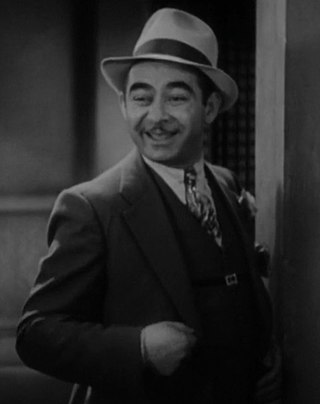
Maurice Black was an American character actor known for his portrayal of mobsters. He appeared in more than 100 films from 1928 to 1938, when he died of pneumonia, four days after his 47th birthday. He was married to Edythe Raynore.

Clarence Hummel Wilson was an American character actor.

Claude Ewart King was an English-born character actor and unionist, who appeared in American silent film. With his distinctive wavy hair, King appeared on both stage and screen. He served his country, Great Britain, in World War I in Field Artillery, reaching the rank of Major and surviving the war. He began his stage career in his native country, before emigrating to the US. In 1919, he appeared on Broadway in support of Ethel Barrymore in the play Declassee.






















